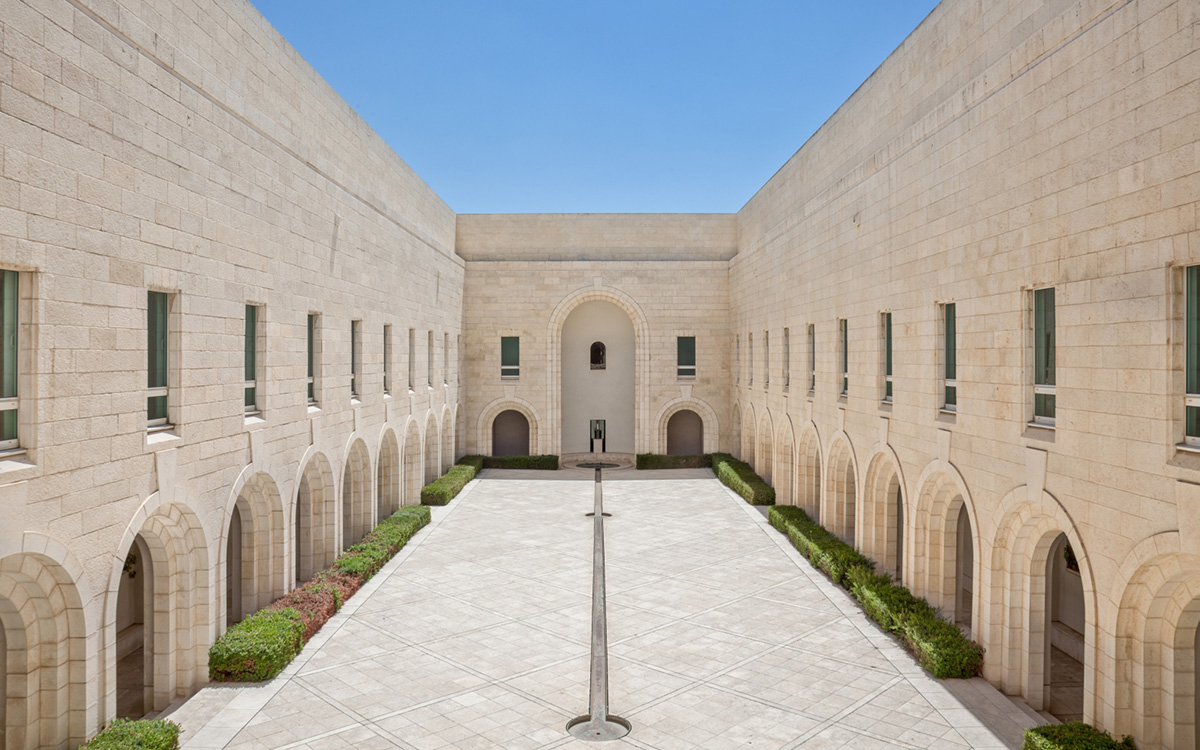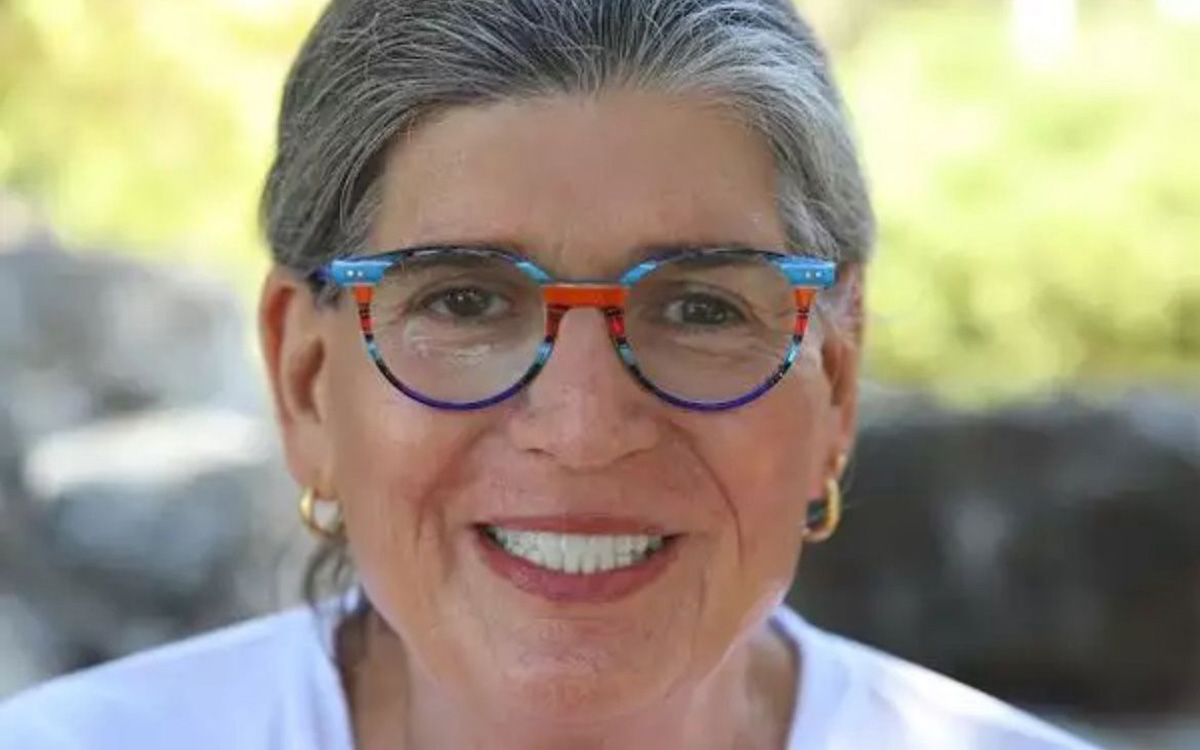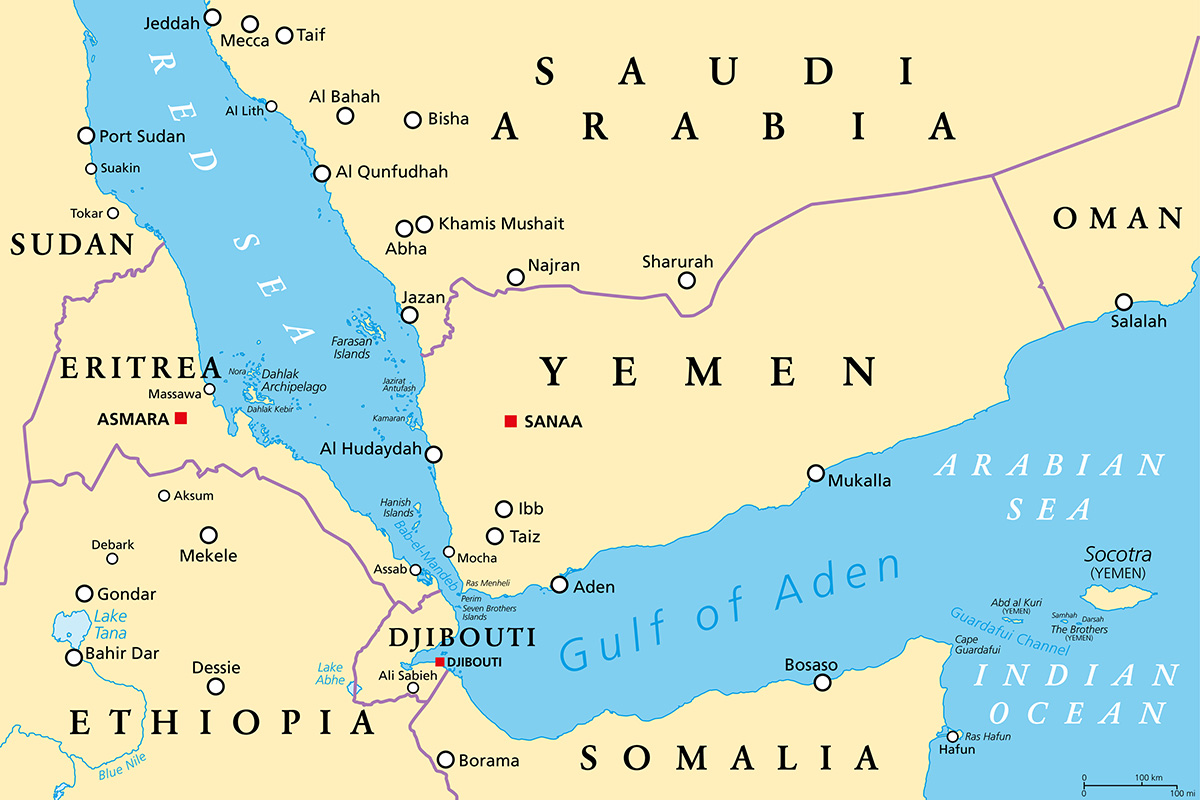Middle East
A provocative ad, a divided nation: The battle over LGBTQ rights in Lebanon
PSA has sparked hope, controversy in Arab world

A new PSA in Lebanon advocating for the decriminalization of homosexuality in the country is stirring up controversy in the Arab world.
The ad first appeared on MTV Lebanon, a network owned by Lebanese politician and businessman Michel Gabriel El Murr, and was later shared on the network’s social media page. The campaign pushes for the repeal of Article 534 in the Lebanese Penal Code, a law first adopted in 1943 that is used to criminalize consensual same-sex sexual relations with up to one year of imprisonment.
In the clip, two men are seen standing side-by-side in an elevator when a third man joins them and pulls a gun from his jacket. The tension is palpable until he leaves. When he does, the first two men grasp each other’s hands when words flash across the screen: “There’s crime and there’s love.”
Screams and gunshots are heard from a distance as the scene fades.
“Based on the words of Pope Francis, ‘Homosexuality is not a crime,’” the network’s X (formerly known as Twitter) caption says, “Yes to the abolition of Article 534 of the Penal Code, which criminalizes homosexuality.”
Since premiering on Sept. 2, the powerful ad has generated an array of attacks from anti-gay figures, including from Culture Minister Mohammad Mouratda, who lambasted the network and accused it of incitement and division. He even went so far as to suggest that airing the ad itself was a criminal act.
Meanwhile, a collective called the Muyul Project premiered a PSA of their own that spoofed the original ad with an alternate ending in which a little girl is seen crying and holding her family as opposing words appear on the screen: “There is a crime that kills a human being, and there is a crime that kills society. Yes to maintaining Article 534 and protecting societal and family values.”
Despite the outcry, LGBTQ Arabs and allies insist the campaign is sparking much-needed dialogue about the law — which they say is long overdue.
“This campaign does a lot to start conversations and challenge the status quo, especially within the context of Lebanese society,” Joe Kawly, the first openly gay Arab news anchor, told the Washington Blade. “While the backlash was predictable, the visibility and support that this campaign provides to the LGBTQ+ community are invaluable.”
Bertho Makso, the founder and executive director of Proud Lebanon, an LGBTQ and intersex rights organization, told the Blade the ad reinforces the work he and his team have been doing “since 2018” to engage various political parties and draft bills that would decriminalize homosexuality.
Nine MPs in July co-sponsored legislation that would have decriminalized homosexuality, but backlash was swift. One MP withdrew their name altogether because of harassment and threats.
While the ad campaign is a bold move, it is not exactly an isolated incident. The country was once considered an oasis of relative tolerance for LGBTQ and intersex rights in the Arab World, but has undergone an anti-LGBTQ tidal wave in recent years.
Members of the far-right Christian group Soldiers of God on Aug. 23 brutally attacked Madame Om, a popular gay-friendly bar in Beirut’s Mar Mikhael neighborhood, during a drag show. Reports indicate the police looked on as patrons were assaulted. This attack comes as Education Minister Abbas Al Halabi opened an investigation into rumors of pro-LGBTQ messaging in materials used in schools. And Hezbollah leader Hassan Nasrallah in July declared consensual same-sex sexual relations should be punishable by death.
To further complicate matters, Article 534 doesn’t explicitly address homosexuality. Rather, it only points to sexual acts that are “contrary to the order of nature.”
Even though several courts have tried to affirm consensual same-sex acts don’t qualify as being “against nature,” it hasn’t stopped multiple arrests continuing to persist, according to a recent Proud Lebanon report. Mouratda and MP Ashraf Rifi have introduced more stringent bills.
Mourtada’s measure proposes up to three years’ imprisonment and hefty fines for promoting or engaging in “deviant sexual relations” and Rifi’s bill sought the explicit criminalization of homosexuality with heightened penalties.
As Lebanon continues its attacks against LGBTQ and intersex people, some suggest it’s all a ploy to distract from the country’s crumbling economy. Even more notably: Lebanon has lacked a president since October 2022, a clear reflection of its turbulent political landscape.
Helem, the first LGBTQ and intersex organization in the Arab world established in 2001, said in a recent statement “the decision to suddenly and systematically target LGBTQ individuals is a very old tactic used by multiple failing autocratic regimes around the world.”
As Kawly explains, MTV Lebanon’s campaign may herald a turning point for the nation, asserting LGBTQ and intersex people’s inherent role in Lebanon’s value as a whole.
“Social change is often slow and painful, but the very fact that we’re seeing more visibility and conversation on LGBTQ+ issues signal a potential shift,” he said. “With every campaign, every story told, every law repealed, we’re inching closer to a more inclusive and accepting society.”
“When it comes to Lebanon, for sure there is a bright future because we are working for it,” added Makso. “We believe in it, and we are fighting for it.”
Middle East
Israeli Supreme Court rules country must allow two mothers on child’s birth certificate
LGBTQ activists praised the ruling

Supreme Court judges on Thursday unanimously ruled that the Population Authority must register female couples as mothers on the birth certificates of their children they have together.
The decision was made following a petition submitted by nine female couples, mothers of children born through anonymous sperm donation. The panel of judges, headed by Supreme Court President Uzi Fogelman and Judges Ruth Ronen and Alex Stein, rejected the Population Authority’s claim that the birth certificate reflects only biological parentage and ruled that both the birth mother and her partner must be registered as the child’s parent.
“The exclusion of the non-biological parent from the birth certificate means a preference for the position of the biological parent over parenting based on other parents,” Fogelman wrote in the ruling. “In terms of substantive law, the parenting of both parents — the biological parent and the non-biological parent — is equal and it includes the same basket of parental rights and duties. I do not believe that when at the level of substantive law there is equality between the parents, there is room to distinguish between them at the level of registration in the birth certificate.”
Fogelman also referred to the interpretation that may be given to the lack of registration on the birth certificate as “an offensive message according to which we are dealing with relationships that are different in nature and essence: while biological parentage is ‘real’ parentage, non-biological parentage is inferior and suspect parentage, a kind of ‘conditional’ parentage.”
The ruling does not apply to male couples because the petition dealt with couples who conceived with the help of anonymous sperm donation.
The ruling was issued as part of a petition submitted around eight years ago by nine female couples, who claimed that not registering the non-biological mother on the birth certificate deprives the child of rights that include acquiring foreign citizenship and petitioned the Interior Ministry and the Population and Immigration Authority to issue their children amended birth certificates that include the names of both mothers.
The Population Authority refused the couples’ request on the grounds that the birth certificate is a document that reflects the biological parentage at the time of birth, and is not updated with the passage of time. The petitioners claimed that the Population Authority’s policy violates the right to family life and the right to equality, since it discriminates against same-sex couples. And as evidence, they pointed out that when it comes to heterosexual couples, the Interior Ministry issues them corrected birth certificates — even in cases of adoption by the spouse of the biological mother or in the case where sperm donation is used for the birth of the child.
Fogelman accepted the respondents’ position according to which the birth certificate was intended to document the identity of the child at the initial point in time of his life. Alongside this, he rejected the respondents’ position that the birth certificate was intended to reflect biological parentage.
“A birth certificate is one of the most important documents a person has. It confers a basket of rights and is also used for the purpose of regulating citizenship in foreign countries,” said attorneys Daniela Ya’akobi, Hagai Kalai and Achinoam Orbach, who represented the petitioners. “For all these years, the state has insisted on denying children of two mothers a birth certificate that reflects the reality of their lives. The judgment of the High Court of Justice put an end to ugly and unnecessary discrimination, which has no purpose and never had. It is a great victory, but no man needs or wants to win his country. The time has come for the state, on its own initiative, to allow full equality of rights for all its citizens, including LGBT people.”
Aguda Chair Hila Peer responded to the ruling.
“This is a historic day when our families are equal,” she said. “For years the Interior Ministry has refused to register proud mothers on the birth certificate and now, thanks to the High Court of Justice, we are taking a significant step towards equality.”
Middle East
Sheila Weinberg becomes Israel’s first transgender council member
Former teacher elected in Kiryat Tivon on Feb. 27

WDG is the Washington Blade’s media partner in Israel. WDG published this article on their website.
Sheila Weinberg on Feb. 27 wrote another chapter in LGBTQ history in Israel when she was elected as the country’s first transgender council member.
Weinberg, the 65-year-old chair of the “Transiot Israel” association and a former teacher, was elected to the Kiryat Tivon Local Council after her “More to Tivon” list won 37.7 percent of the votes.
In the past she was a member of the LGBTQ Committee in Kiryat Tivon and in the last year she was active in the protest against the proposed judicial reforms. Weinberg has two children and a granddaughter. She started the process of affirming her gender about five years ago when she was 60 years old.
“Many people in Kiryat Tivon knew exactly who I was and about my past. It didn’t bother. It seems to me that in certain places it was helpful,” Weinberg told WDG. “The residents of Tivon decided clearly in favor of a liberal, pluralistic and democratic Tivon. I have been a member of Meretz for many years and in these elections we joined a single list with ‘Yesh Atid’ and ‘Our Tivon’ and ‘Hoze Hadash’ (‘New Contract’), a list whose prominent values are equality among all. On the list were the women who founded the LGBT Committee in Tivon that operates with full vigor.”
Despite the historic title as the first trans council member in Israel, Weinberg is not content with just being active in the issues of the LGBTQ community, and aims (to become involved with) the education portfolio in her locality.
“I intend to use this branding to operate in Tivon in two main areas: Education and the LGBT community. Naturally, I see myself as someone who has a well-founded view of education in Tivon and I would be happy to be incharge of the education in Tivon, alongside the LGBT community. I have been teaching all my life. I taught for 35 years in several places, including the University of Haifa, and since the war started I have also been replacing a teacher who went into the reserves voluntarily.
Furthermore, I think I got my foot in the door for trans girls and trans boys. I will of course also continue to act as the chairman of ‘Transiot Israel’ and at the same time promote the needs of our community, which in the Haifa and Tivon area suffers from a lack of people.
I think I can speak for girls whose life path was less paved than mine. For those girls and boys who were thrown out on the street, out of school, who suffer physical and verbal violence, who are discriminated against economically and socially. And most of all, I would love to hear from my friends in the community and my friends there what the priorities are, not necessarily in Tivon but in Tel Aviv and other places.”
Other candidates from the LGBTQ community won in other municipalities in Israel.
In Tel Aviv-Yafo, Chen Arieli and Moti Reif entered the council for another term, as well as Reut Nagar and Shahar Levy. Assaf Weiss will serve as a council member in Ramat Gan, lawyer Daniela Jacobi in the Ramat Hasharon Council and Ella Kaufman will serve another term on the Kadima Council.
Middle East
Houthi court sentences 13 people to death for homosexuality in Yemen
Iran-backed rebel group controls large swaths of country

Reports indicate a court in Yemen has sentenced to death 13 people who had been charged with homosexuality.
Agence France-Presse reported the court in Ibb Governorate, which Iran-backed Houthi rebels control, announced the sentences on Feb. 4. The province’s main city is roughly 125 miles south of Sanaa, the rebel-held Yemeni capital.
The State Department’s 2022 human rights report notes Yemeni law criminalizes consensual same-sex sexual relations, “with the death penalty as a sanction under the country’s interpretation of Islamic law.” The report also indicates there were “no known executions of LGBTQI+ persons in recent years.”
The Houthis have been attacking commercial ships in the Red Sea since Hamas on Oct. 7, 2023, launched a surprise attack against southern Israel from the Gaza Strip. The U.S. and the U.K. last month launched air strikes against the Iran-backed rebel group.
-

 District of Columbia4 days ago
District of Columbia4 days agoCatching up with the asexuals and aromantics of D.C.
-

 South America4 days ago
South America4 days agoArgentina government dismisses transgender public sector employees
-

 Maine5 days ago
Maine5 days agoMaine governor signs transgender, abortion sanctuary bill into law
-

 Mexico3 days ago
Mexico3 days agoMexican Senate approves bill to ban conversion therapy












